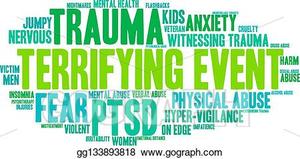Debriefing a Traumatic Event

A Focused Conversation to begin to process traumatic situations for use with colleagues, friends and family, and how to respond to them productively. Often traumatic events become undiscussable and this enables persons to talk about them
Goal
To face reality and begin to deal with it productively
To move from shock to begin to come to terms with the situation
Materials
Instructions
Before
Setting: Best if in an informal circle, where participants can see each other
Types of participants: any
Time needed: 20 - 30 min.
Ideal conditions: relaxed atmosphere; a deep beathing exercise will help to create relaxation
Pre-work required: Tailor the suggested questions to address the specific situation.
Type of Facilitator-Client Relationship: A great deal of trust on the part of the group.
During
Context
This event has shaken all of us. Let's take a little time to reflect on what happened, so we can come to terms with it. I'm going to ask some questions that will help us gradually process what happened. I would like you to let everyone have their own answers -- no interrupting, arguing, or judging what anyone says.
Objective Questions
Imagine you were a video camera recording what you have seen and heard happening since the first events. What actions, words, phrases, objects, and scenes are recorded on your tape?
Let's get everything out - the first events, then everything that has happened since -- so we all have as full a picture as possible of what has happened to this point.
Reflective Questions
What were your first reactions?
What shocked or frightened you most about this incident?
What images or previous experiences were triggered for you?
How else did you find yourself reacting?
Interpretive Questions
What impact has this had on you personally? How are you different now?
How are we different as a group or as a society as a result of these events?
How has our view of the world changed?
What might have been some contributing factors to why this happened?
What might be some of the underlying issues behind all of this?
What might we learn from this?
Decision Questions
What can we do to deal with the situation in the short term?
What are some things we can do to begin to deal with the underlying issues and prevent events like this from happening again?
What can we do to help each other?
Closing
We will undoubtedly continue to reflect on this. If you need help, please be sure to ask for it.
Hints:
Some of these questions are difficult to answer, so if there are few spoken answers, don't worry. The very fact of raising these questions and following this flow allows deeper reflection later.
After
Follow-Up Required:
It may be helpful to print out the questions for people to take with them for later reflection.
Tips for online Facilitation
1. Prepare 4 digital boards as follows:
- The Objective questions at the top of the first board.
- The Reflective questions at the top of the second board.
- The Interpretative questions at the top of the third board.
- The Decision questions at the top of the fourth board.
3. After debriefing the exercise, offer to leave the boards available to them online for a period of time so they can continue to think about what occurred and add more thoughts. They can use it as a method of checking in with the Facilitator for further discussion if they need it.
Attachments
- Trauma.jpg
- DebriefingTraumaticEvent.pdf
Background
Source: Jo Nelson
History of Development: This conversation is adapted from a conversation in Jo Nelson's book The Art of Focused Conversation for Schools, published in May, 2001 by New Society Publishers and The Canadian Institute of Cultural Affairs, p. 155. Third edition published by iUniverse.
Recognizable components: The ToP Focused Conversation Method.
References: The Institute of Cultural Affairs Focused Conversation Method.